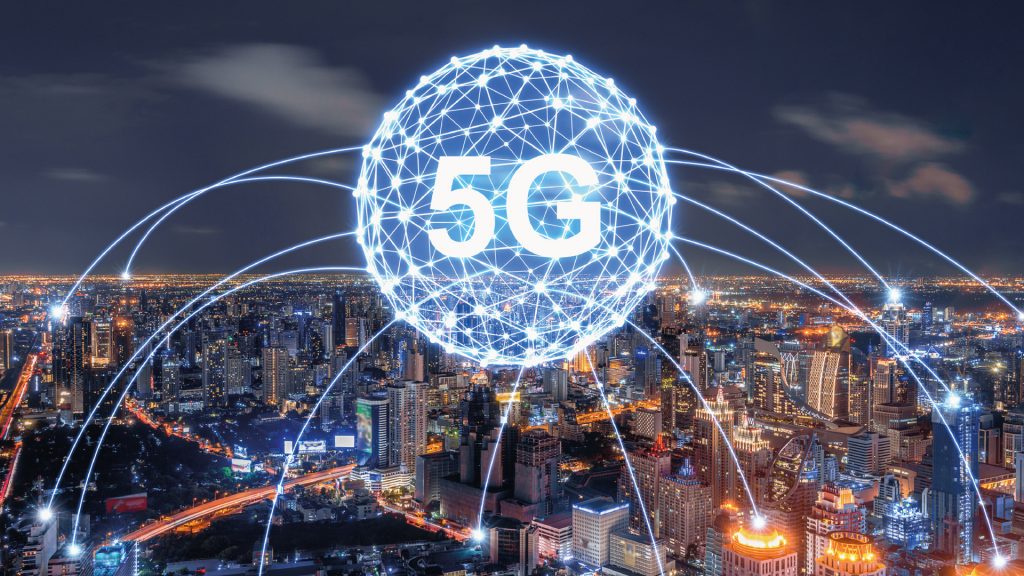5G technology is revolutionizing the mobile landscape with ultra-fast internet speeds, low latency, and improved network reliability. Unlike previous generations, 5G allows users to download and upload data at unprecedented rates, enabling more sophisticated and resource-intensive applications. For mobile app developers, this presents a huge opportunity to rethink app design, performance, and features.
Understanding the impact of 5G is crucial for developers, businesses, and startups aiming to stay competitive. This article explores how 5G is transforming mobile app development, from enhancing user experiences to enabling new technologies, while also addressing the challenges developers must consider.
Faster Speeds Enable Richer App Experiences
One of the most significant benefits of 5G is its high-speed data transfer, which allows developers to create apps with richer multimedia content and complex functionality. Apps can now support high-resolution videos, augmented and virtual reality features, and interactive content without performance lags or buffering issues.
This opens new opportunities for gaming, streaming, and social media apps to provide immersive experiences. Mobile apps that were previously limited by network speed can now operate smoothly, allowing developers to implement advanced features and improve overall user engagement and satisfaction.
Reduced Latency and Real-Time Functionality
5G dramatically reduces latency, meaning data travels almost instantaneously between devices and servers. This improvement is critical for applications requiring real-time responses, such as online multiplayer games, video conferencing, telemedicine apps, and IoT-based solutions.
For developers, low latency allows the creation of apps that interact seamlessly with users, making experiences more responsive and natural. Real-time functionality also enables innovative solutions, such as live collaboration tools and augmented reality experiences that were previously challenging to implement over slower networks.
Enhanced Cloud Integration
With faster speeds and reliable connections, 5G enhances cloud computing integration for mobile applications. Apps can now process data in the cloud in real-time, reducing the dependency on device storage and computational power.
This allows developers to build more complex, AI-driven, or data-intensive applications. From cloud-based gaming to AI-powered analytics and enterprise apps, 5G ensures seamless access to cloud resources, enabling richer functionality and improved app performance.
Opportunities for IoT and Smart Devices
5G connectivity expands possibilities for mobile apps interacting with IoT devices, smart homes, and connected vehicles. With higher bandwidth and low latency, apps can manage and monitor multiple devices simultaneously, enabling smarter and more integrated solutions.
Developers can leverage 5G to create innovative applications for home automation, healthcare monitoring, smart cities, and automotive industries. The enhanced connectivity allows for reliable real-time communication between devices, opening up opportunities for entirely new app categories.
Challenges for Mobile App Developers
Despite the benefits, 5G presents technical challenges for developers. Apps must be optimized to handle ultra-fast speeds and varying network conditions while maintaining energy efficiency on devices. Failure to optimize can lead to battery drain and inconsistent user experiences.
Additionally, security and privacy concerns become more critical as more data is transmitted and stored across networks. Developers need to implement robust encryption, secure APIs, and data protection measures to safeguard user information and comply with regulations.
Future Trends in 5G Mobile App Development
5G is set to drive future trends such as augmented reality (AR), virtual reality (VR), cloud gaming, and AI-powered mobile applications. Developers can create richer, more interactive, and immersive experiences that were previously limited by slower networks.
Emerging trends also include smart cities, autonomous vehicles, and real-time remote monitoring apps. By adopting 5G-ready development practices, businesses can stay ahead of the curve and deliver innovative solutions that meet evolving user expectations.
Conclusion
5G technology is transforming mobile app development by enabling faster speeds, lower latency, enhanced cloud integration, and new possibilities for IoT and smart devices. Developers now have the tools to create highly interactive, data-intensive, and real-time applications that elevate user experiences.
To take full advantage of 5G, businesses and developers must adopt strategies that optimize app performance, ensure security, and anticipate future trends. Embracing 5G allows mobile apps to deliver cutting-edge functionality, improve engagement, and maintain a competitive edge in the rapidly evolving digital landscape.

